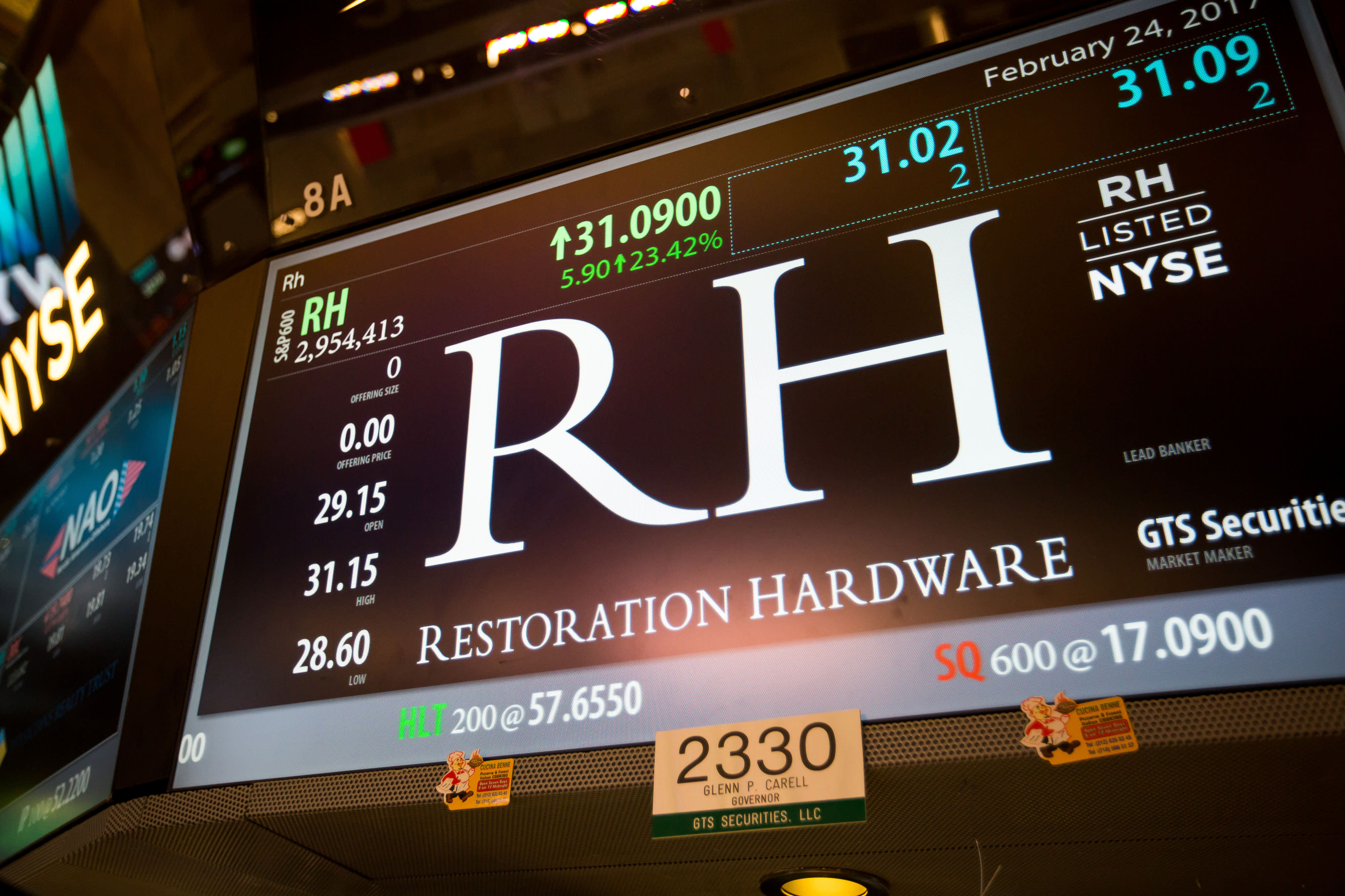RH, the company formerly known as Restoration Hardware, posted fiscal third-quarter earnings Wednesday that topped analysts’ estimates, but left its forecast for the current quarter largely unchanged.
RH shares were recently trading slightly higher in extended trading Wednesday, but the stock had been down earlier.
Here’s how the company with Wall Street’s expectations, according to Refinitiv consensus estimates:
- Earnings per share: $2.79, adjusted, vs. $2.23, expected
- Revenue: $677 million vs. $676 million, expected
RH’s net income rose to $52.5 million, or $2.17 per share, from $20.1 million, or 73 cents per share, in the same quarter a year ago.
After adjustments, the company earned $2.79 per share, exceeding the earnings of $2.23 per share analysts expected, according to Refinitiv.
Net revenue increased 6% to $677 million, from $636 million in the year ago quarter. Analysts expected revenue of $676 million.
For fiscal year 2019, RH increased its adjusted earnings per share range to between $11.58 and $11.70, and slightly narrowed its revenue outlook to between $2.69 billion and $2.69 billion. The company previously expected adjusted earnings of $10.78 to $11.01 per share and revenue between $2.68 billion and $2.69 billion.
RH essentially left its fourth-quarter outlook unchanged, slightly widening its revenue estimate to $703 million to $711.5 million from $703 million to $711 million. The company continues to expect to earn between $3.50 and $3.62 per share, on an adjusted basis.
The company also said that it plans to launch RH International in 2021 and 2022, calling it “their largest growth opportunity” toward a potential valuation of $20 billion. RH currently has a market capitalization of $3.8 billion.
So far, the company said it is close to completing real estate transactions for 5 to 7 initial locations in Europe.
CEO Gary Friedman touted the firm’s business model, which relies primarily on physical stores, in the “post WeWork era.”
“We also believe this recent period has been reminiscent of previous times when growth without profitability has been unjustly rewarded, and valuations were based on the misplaced belief that an online retail business is more profitable than a physical store,” said the company in its press release. “This view has driven new concepts to launch as ‘digitally native brands’ chasing internet valuations and cheap capital from private and public markets who have somehow confused an online retail startup, or in the case of WeWork, an office subleasing business, with a technology company.”
WeWork garnered national attention and scrutiny for its sky-high valuation of $47 billion in September ahead of its planned IPO. As its debut neared, questions were raised about its true value, and the IPO was withdrawn. The debacle resulted set off a series of events that culminated in a financial rescue by SoftBank, which was already its largest investor.
In early November, Warren Buffett’s Berkshire Hathaway revealed in a SEC filing that it had a roughly $206 million stake in RH as of the end of September. That makes Berkshire the fourth largest RH stakeholder, according to FactSet.
Despite being caught in the middle of the U.S.-China trade war, RH has seen its shares rise about 34% since its last earnings report and 72% year to date, thanks in part to analysts’ optimism on RH’s long-term growth and word of the Buffett investment.
